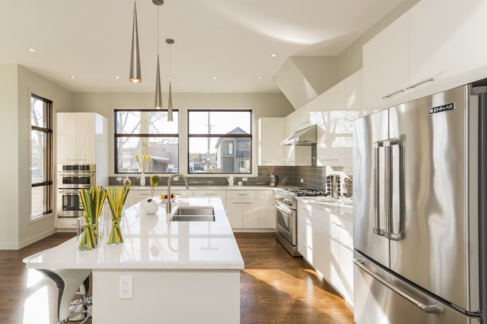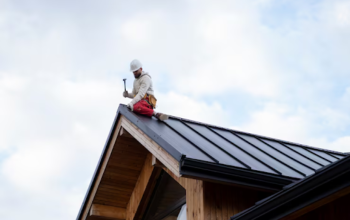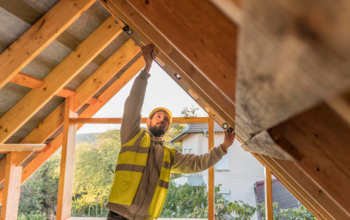Embarking on a kitchen remodeling project can be an exhilarating yet daunting task. It’s an opportunity to inject new life and functionality into one of the most vital spaces in your home.
However, before you dive into the selection of countertops and fixtures, it’s crucial to plan meticulously to ensure your remodeled kitchen aligns with both your aesthetic and practical needs. Here’s what you need to know before you start tearing down walls and picking out tiles.
Establish Your Budget
- Set Realistic Financial Limits: The first step in any kitchen remodeling project should be setting a budget. Determine how much you are willing to spend, and consider factoring in a buffer of 10-20% for unexpected costs. Having a well-defined budget helps in making decisions about what is achievable in terms of materials, appliances, and structural changes.
- Cost-Benefit Analysis: Decide if the cost of each potential update is worth the benefit you’ll receive. For instance, higher-end appliances might be worth the investment if you are a culinary enthusiast, but if you rarely cook, perhaps a mid-range model would suffice.
Define Your Needs and Lifestyle
- Evaluate Your Kitchen’s Functionality: Consider how you use your kitchen. Do you entertain often? Do you have a large family and need more cooking space? Answers to these questions will help tailor the design to improve functionality. For instance, if multiple people will cook simultaneously, consider wider walkways and perhaps an additional sink.
- Storage Solutions: Efficient storage solutions can dramatically improve the functionality of a kitchen. Think about incorporating features like pull-out drawers, pantry pull-outs, and clever corner cabinets to maximize space and accessibility.
Choose the Right Professionals
- Hiring the Right Team: A kitchen remodel in Montecito is not a simple DIY project. Hiring experienced professionals can make a significant difference in managing timelines and ensuring quality workmanship. Look for contractors, designers, or a remodeling company with good reviews and a solid portfolio of completed projects.
- Communication is Key: Ensure that you maintain open lines of communication with your contractor. Clearly articulate your vision, and make sure they understand your expectations. Regular check-ins can help keep the project on track and within budget.
Plan the Layout and Design
- Efficiency of Layout: The layout should promote ease of movement and efficiency. The classic “work triangle” concept—where the stove, sink, and refrigerator form a triangular pattern—is a time-tested layout that reduces wasted steps.
- Design Aesthetics: Your new kitchen should not only be functional but also reflect your personal style. Whether you’re going for a modern, sleek look or a more traditional design, the aesthetics should blend seamlessly with the rest of your home.
Selecting Materials and Appliances
- Quality Over Quantity: Invest in high-quality materials that will withstand the wear and tear of daily use. Choosing durable countertops, like granite or quartz, and high-quality flooring materials can extend the life of your remodel.
- Appliance Integration: Consider how your appliances will integrate into the design. Are you looking for built-in appliances that blend into the cabinetry or do you prefer them as standalone features? Make decisions that will contribute to a cohesive look and meet your functional needs.
Handle Legalities and Permits
- Permits and Regulations: Kitchen remodels often require various permits, especially if you plan on altering plumbing, gas, or electrical systems. Check with your local building authorities to understand the necessary permits to avoid any legal headaches down the line.
- Resale Considerations: While it’s important that your remodel suits your personal preferences, if you plan on selling in the future, consider choosing designs and materials that have broad appeal. Neutral colors and classic designs tend to attract more buyers.
Prepare for Disruption
- Set Up a Temporary Kitchen: Kitchen remodeling can take several weeks to months, so set up a temporary kitchen space elsewhere in your home. A simple setup with a microwave, refrigerator, and a small cooking station can help maintain some normalcy during construction.
- Expect the Unexpected: Be prepared for delays and unexpected issues. Whether it’s a backorder on materials or an unforeseen plumbing problem, flexibility is crucial.
Conclusion
A kitchen remodel in Santa Barbara is a significant investment in your home, promising not only to enhance your living space but also to potentially increase your home’s value. By planning carefully, hiring the right professionals, and making informed decisions, your kitchen remodel can be a smooth and successful project. Remember, the key to a successful kitchen remodeling project lies in thorough preparation and clear communication.
For more information visit : regulararticles.com



